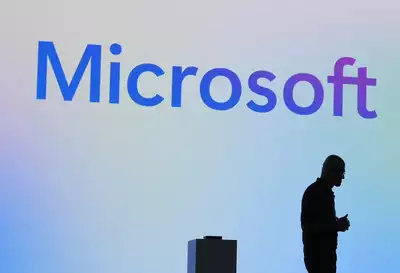slot casino online
There is a lot of dither about the future of journalism. Make no mistake, it is the essential commodity. If you know what is going on in Gaza, Ukraine or Syria, it is because brave journalists told you. Not the government, not some academic institution, not artificial intelligence, and not hearsay from your friends or from a political party. The crisis in journalism isn’t that it failed analytically in the last election, or that we — an irregular army of individualists — failed, but that journalism has run out of money and its political enemies have found that the courts (and the fear of libel prosecution) can terrorize the companies that own the media. In 2016, the gossipy site Gawker was sued by the pro wrestler and political figure Hulk Hogan. The lawsuit was financed by the billionaire investor Peter Thiel. Now come two suits, filed by President-elect Donald Trump: One that he won against ABC News, and one to be filed against the Des Moines Register. It is reported that conservative interests plan a series of these legal interventions against the media. This will have a frightening effect on news coverage. When there is fear of prosecution, there is less likely to be investigative news coverage. So far, the most troublesome of the prosecutions has been the one against ABC News. The network caved in early. It agreed to pay $15 million plus legal fees into a fund for what will be the first Trump presidential library. Could it be that ABC is owned by Disney, and Disney wants good relations with the incoming administration? However, a much bigger problem faces the media than the fear of prosecution. It is that the old media, led by local and regional newspapers, is dying. Although there are thousands of podcasts, they don’t take up the slack. You could listen to an awful lot of podcasts and not know what is going on. State houses and local courts aren’t being covered. The sanitizing effect of press surveillance has been withdrawn and, frankly, God help the poor defendants in a local court where there is a disproportionate desire to plead cases, to avoid honest trials even when there is conspicuous doubt. I never tire of repeating what Dan Raviv, former CBS News correspondent, said to me once, “My job is simple. I try to find out what is going on and tell people.” Quite so. However, there is a problem: Journalism needs to be concentrated in a newspaper or a broadcast outlet where there is enough revenue to do the job. Otherwise, you get what I think of as the upside-down pyramid of more and more commentary, based on less and less reporting. We are awash in commentary, some of it very good and some of it trash. It is all based on news gathered by those news organizations that can afford to employ a phalanx of reporters. Regional newspapers used to have Washington bureaus and foreign bureaus. At one time, the Baltimore Sun had 12 overseas bureaus. Now it has none. This is the story nationwide. Fewer people actually cover the news, digging, checking and telling us what they have found. Throughout the history of journalism, technology has been disruptive, sometimes advantageously and sometimes less so. Modern printing presses developed at the end of the 19th century were important boosters, as was the invention of the Linotype machine in 1884. On the negative side, television killed off evening papers, and podcasts are taking a toll on radio. Now, the internet and tech companies have siphoned off most of the revenue that supported newspapers, radio and television. As one can’t have a free and fair society without vibrant journalism, we clearly need a new paradigm which is internet-based news organizations that are large enough and rich enough to do the job in the time-honored way with reporters asking questions, whether it is at the courthouse, the White House or on the battlefield. There is a clear choice: News and informed analysis, or rumor and conspiracy. — Llewellyn King is the executive producer and host of “White House Chronicle” on PBS. He wrote this for InsideSources.com .
Stock market today: Wall Street edges back from its records as bitcoin briefly pops above $100,000
None
With so many free VPNs available, why would you consider paying for one? The simple answer is that free VPNs are quite ineffective at unblocking the sites you need. Additionally, they can expose your data or steal your information, posing significant privacy and security risks. Explore all the main reasons why free VPNs cannot be trusted. With a free VPN, you might enjoy decent performance initially, but eventually you’ll notice that they fall short in unblocking websites. This can become increasingly frustrating over time, leading you to abandon it altogether. Streaming sites like Netflix have their own methods to detect VPN usage , often causing web pages to crash. While launching Netflix, I experienced crashes on the Edge browser. I had to give up eventually. I tried all the popular browser-based free VPNs , but none could help me access Netflix. The problem with streaming sites is also visible on gaming platforms, Zoom calls, and several social media websites. It’s very easy for most modern websites to detect VPN usage if a free VPN provider is involved. But, that is not the case with a top-ranked VPN like ExpressVPN, Surfshark or NordVPN . Each time you visit a website, your device makes a DNS request through your ISP or router to resolve the domain name into an IP address. In exchange, the website receives your real IP address. It can further use cookies and referrer headers to access your browsing history and online activities. The primary purpose of using a virtual private network (VPN) is to prevent IP address exposure. However, if your DNS information continues to leak to random websites , you cannot trust your free VPN. It’s only a matter of time before your real IP address is leaked. For most of the free VPNs I tested, I discovered they were exposing my DNS requests repeatedly. This is not how it’s meant to be. A good VPN ensures airtight security, preventing your DNS requests from being exposed. Top-rated commercial VPNs have built-in features that let you test for DNS leaks, WebRTC leaks , and IP address exposures. The adage, “if you’re not paying for it, you become the product” couldn’t be truer for free VPNs and proxies. While you might enjoy accessing region-restricted videos through a free VPN, data harvesters benefit even more. They gain extensive insights into your preferences and browsing habits. Since free VPNs need funding, they often sell your data to third parties. Who are these exactly? You may have encountered a few of the big ones: companies like Acxiom, Experian, River City Media, and LocalBlox. While these brokers only sell you targeted ads, the biggest threat comes from cybercriminals on the dark web that do a lot worse . Until a significant breach grabs our attention, such as the NPD data leak , or the AT&T breach , many of us tend to ignore this problem. In the past, I was quite lax about using free VPNs until it affected me personally. My credit card details were leaked online, and someone attempted to make purchases on Macy’s website. The sudden surge in online fraud is something we cannot ignore, and free VPNs are among the worst offenders. With free VPNs, you may expose yourself to having a hidden rootkit that is hard to get rid of, and it can put you at risk of a man-in-the-middle attack. They can also steal your login credentials, passwords, credit card information, and even take screenshots of whatever it is you’re doing. The key distinction between a reputable commercial VPN provider and a run-of-the-mill free VPN is its active adherence to a no-logs policy. Notably, there have been significant advancements in this area in recent years. For instance, both ExpressVPN and NordVPN have transitioned to RAM-only servers , which ensure that all user data is wiped out with every reboot. Given that these VPN providers are based in the British Virgin Islands and Panama, outside the Fourteen Eyes jurisdiction, users can enjoy an added sense of assurance. Even when a VPN provider is based in the United States, such as Hotspot Shield, they enforce explicit in-app no-logs policies. On the other hand, a majority of free VPNs do not have privacy policies that can be trusted. Some of them even made it clear that by using them, you allow your user data to be transferred to China or other countries. Since you may not read the small print, you’re not aware of what you’re agreeing to. Even if you’re indifferent about your data being sold to third parties, we cannot ignore the issue of cyber-surveillance. You might think you’re not important enough to be a target of spying, but many ISPs do track online activities. Government agencies, not necessarily from your own country, can monitor Internet traffic for intelligence, even if you’re not a high-profile individual. Many of these free VPNs lack clear privacy policies or measures to protect their users, increasing the likelihood that they could be designed by cyber-surveillance companies. Additionally, due to browser fingerprinting, your browser, device, and surfing habits create a unique identifier, which can trace you even when you delete cookies. This information is definitely valuable to surveillance agents, advertisers, eavesdroppers, and data thieves. Everybody loves free stuff. And when everyone is connected to the same free VPN service, it is inevitable that the speed is affected. Most free VPN services don’t have a lot of resources allocated, and when there are too many users, you will start to experience speed throttle or even a lost connection. Since free VPNs need to get their funds from somewhere, it’s not uncommon for them to sell your bandwidth to third parties. There is no way to know if the person using your bandwidth knows that they are using stolen bandwidth. Also, if the person using it is doing something illegal, (since it’s your bandwidth) you’re the one that’s going to get in trouble with authorities. We’ve discussed the biggest drawbacks of free VPN products, which should make you pause before using them again. The real question isn’t whether a free VPN can be trusted, but whether the VPN you choose offers genuine value. From a user experience point, the annoying advertisements, especially on mobile apps, is one of the worst aspects of using free VPNs. They always affect your Internet speed. In some cases, they have links to malicious sites. Moreover, free VPNs also limit your ability to select the country to connect to. They only have a handful of servers to begin with. If the free VPN also offers a paid service, they will limit you so you will eventually upgrade to the paid service. For example, the free tier of Hotspot Shield offers 500 MB/day respectively. You can barely watch a streaming movie on Netflix. Not all paid VPNs are created equal; some can be just as frustrating as free ones. This is why we rely on a select few top-tier VPNs that provide the most outstanding service. Our top two recommendations are ExpressVPN and NordVPN , though Surfshark , CyberghostVPN and PrivateInternetAccess are some of the others that are quite high on the list of top commercial VPNs. Image credit: Pixabay . All screenshots by Sayak Boral. Our latest tutorials delivered straight to your inbox Sayak Boral is a technology writer with over eleven years of experience working in different industries including semiconductors, IoT, enterprise IT, telecommunications OSS/BSS, and network security. He has been writing for MakeTechEasier on a wide range of technical topics including Windows, Android, Internet, Hardware Guides, Browsers, Software Tools, and Product Reviews.
Women’s representation in the tech sector is improving across the country, even amid other drops in diversity. That’s according to a Wednesday report from the Vancouver-based Tech and People Network (TAP), which found that women’s representation in Canada’s tech sector made some progress over the last year, increasing from 36.9 per cent to 38.6 per cent among 149 employers surveyed. Nevertheless, the management-level gender pay gap still remains at 17 per cent, with all B.C. employers with over 50 employees required to report gender pay discrepancies by 2026, said the release. Women were represented most in tech companies’ human resources departments (84 per cent), while representation lacked in technology, design and support (27 per cent). Entry-level jobs for (45 per cent) had the highest representation, while women made up a meagre 5.8 per cent of jobs at the specialist level (5.8 per cent). Representation in those categories remain the same as last year, according to TAP’s 2024 Diversity in Tech Dashboard. But broader diversity in the tech sector has taken a considerable blow since 2023, with representation of persons of colour dropping by 4.4 percentage points to 33.1 per cent. The report found that the most significant proportion of people who self-identify as a person of colour were in the manufacturing sector (54 per cent), with the lowest being in the executive/corporate level (19 per cent) – those figures remain unchanged since 2023. Entry-level jobs (46 per cent) had the highest representation of this group, with the lowest being the specialist level (16 per cent). TAP Network CEO Stephanie Hollingshead said in Wednesday’s release that declining representation of people of colour and/or Black people is cause for concern, urging organizations to review recruitment/retention strategies. Underrepresented groups like persons with disabilities slightly increased by one percentage point from 4.2 per cent compared with 2023, with the largest numbers coming from those working in human resources. Representation of 2SLGBTQIA+ also increased annually by one percentage point to 9.9 per cent. However, representation for Indigenous persons was the lowest (0.8 per cent) and even saw a decrease of 0.1 percentage points in the last year. The tech sector experienced a mixed bag of improvements and declines over the last year – this was also the case for equity, diversity, inclusion and belonging (EDIB) policy building in the workplace. Just over half (57 per cent) of the 181 organizations who provided information stated they ask employees for their accessibility needs, with close to half providing EDIB training and analyzing pay gaps. However, only 18 per cent of senior leadership in these companies has set accountability to match these goals. While companies made progress in developing inclusive policies, significant steps forward in diversity and pay equity remain painfully slow, said Hollingshead. “Our 2024 findings serve as an urgent wake-up call for Canada's tech sector. We need decisive, bold action in 2025 to close these persistent representation and gender pay gaps in our sector." The data for TAP Network’s 2024 Diversity in Tech Dashboard was compiled from their tech salary and total rewards survey, which includes data from 27,000 participants at 202 Canadian tech companies. [email protected]Travis Lazarczyk: UMaine football improved, but job not done
- Previous: slot 88
- Next: slot machine online




